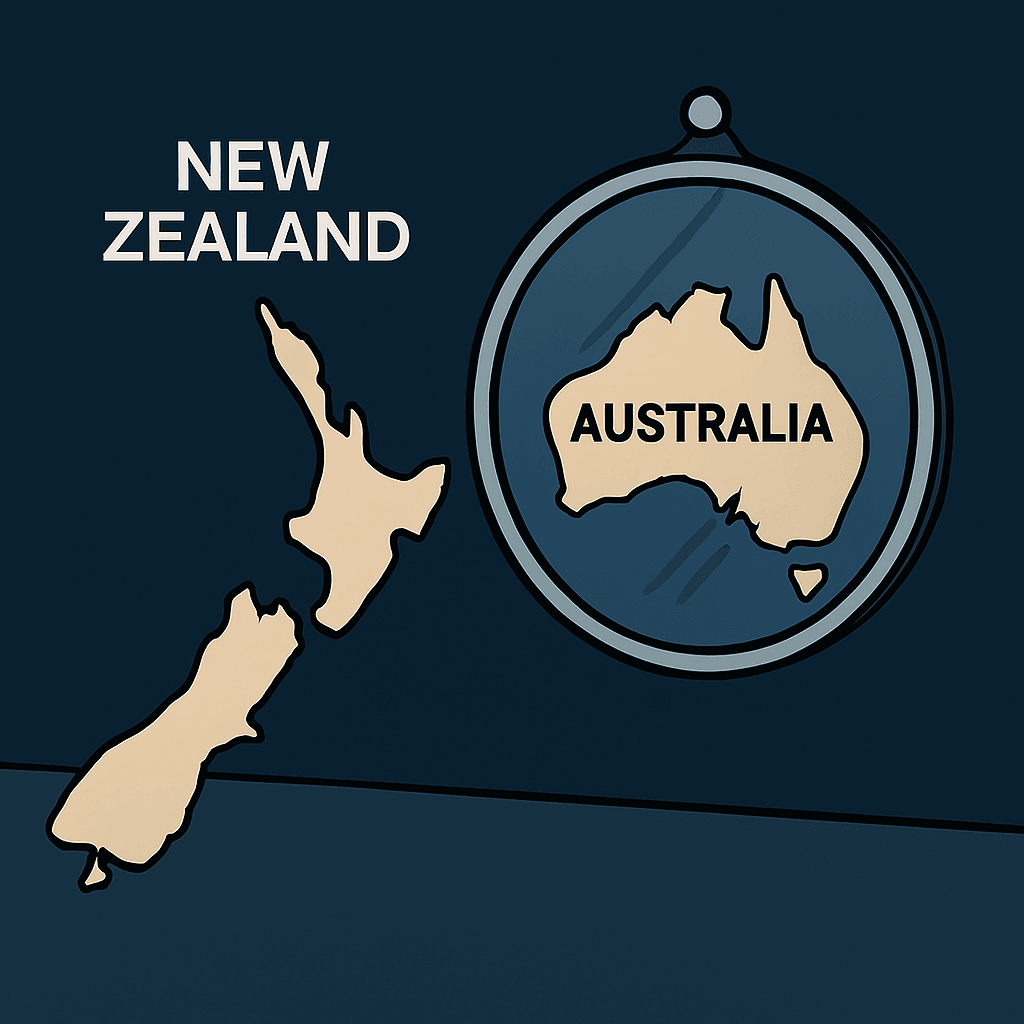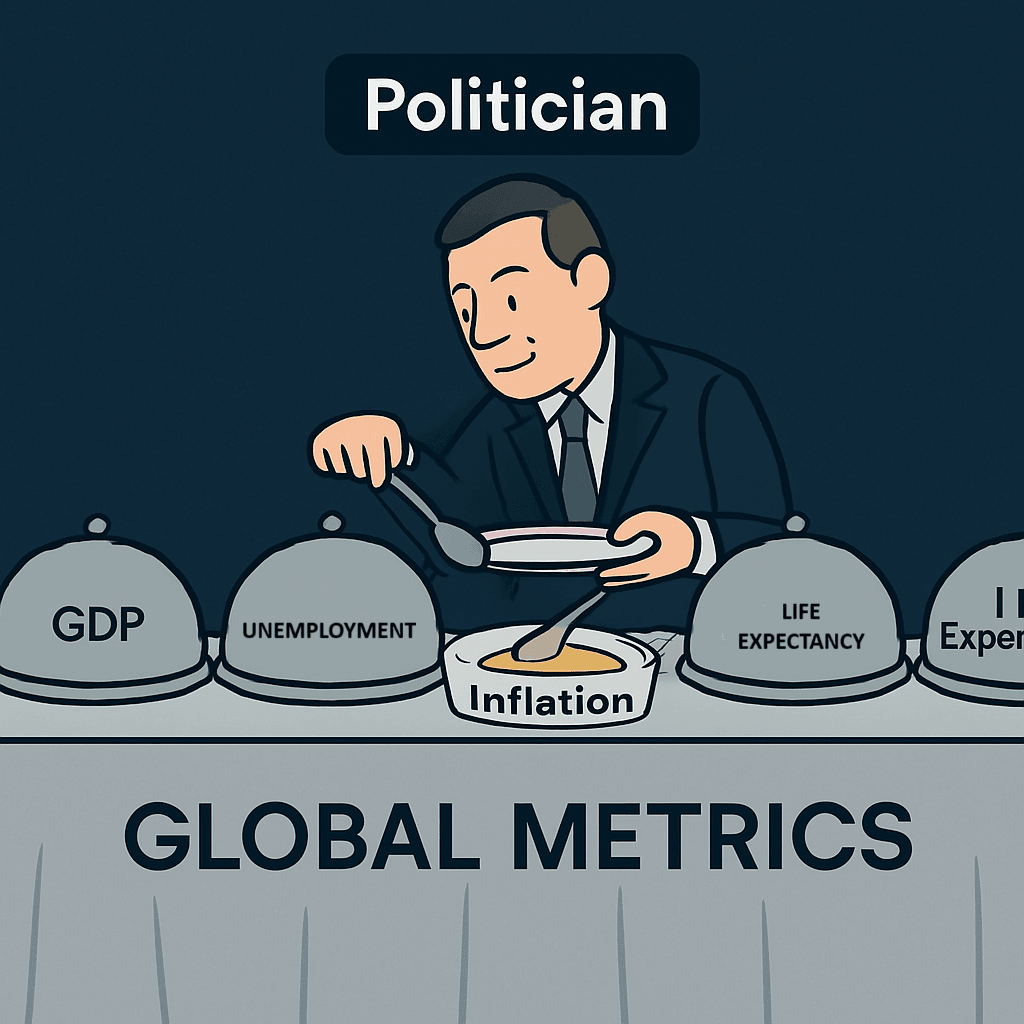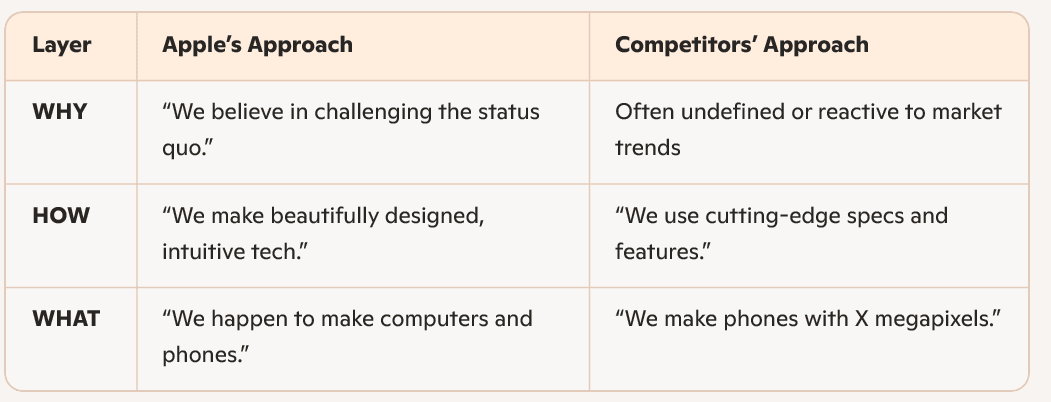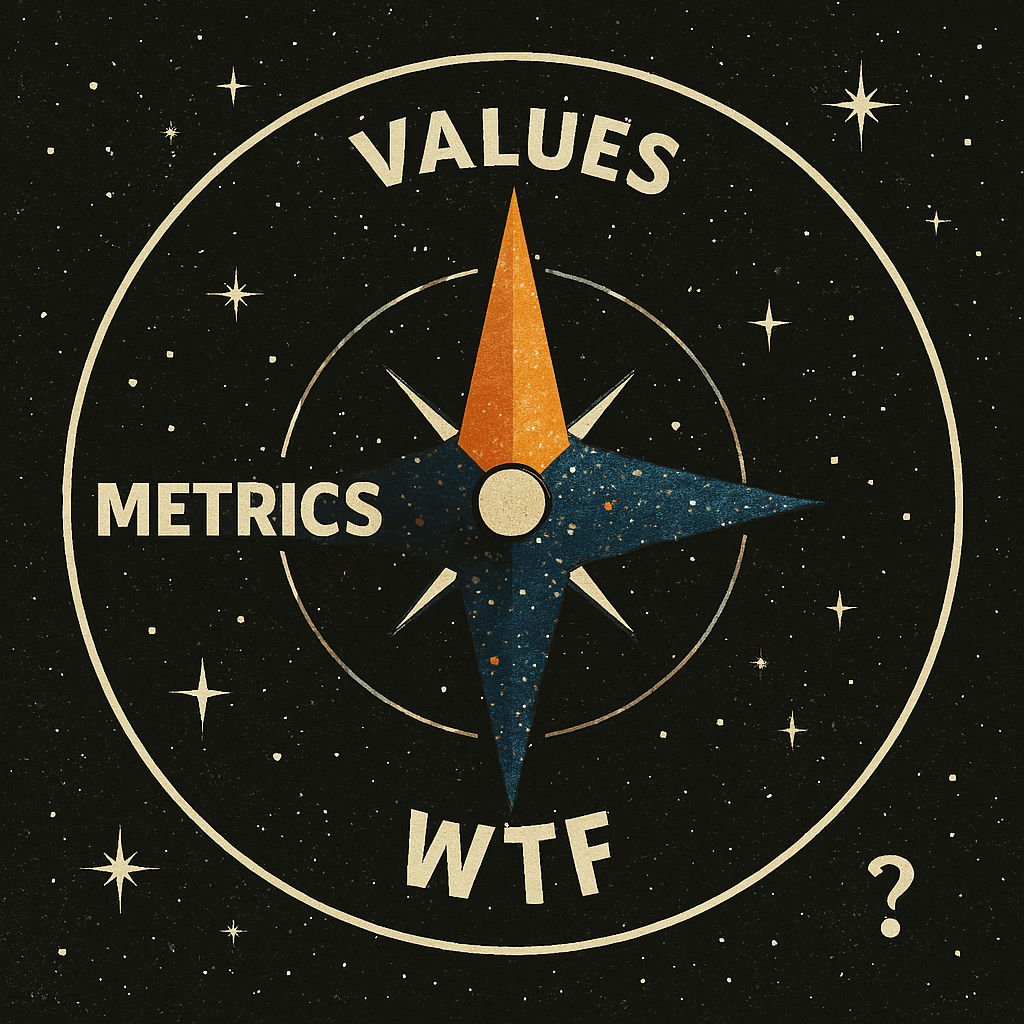When comparison becomes reflex, purpose becomes blur.
Since COVID, New Zealand’s long-standing habit of comparing itself to other nations — especially Australia — has evolved from occasional reference to near-ritual. Case numbers, lockdown timelines, wage growth, housing stats: all filtered through the lens of “countries we compare ourselves to.” But this phrase, once a tool for context, now feels like a reflex. A reflex that comforts, deflects, and distracts.
The pandemic gave politicians a dashboard — and they’ve been stuck staring at it ever since. Comparison became validation. Benchmarking became strategy. And somewhere along the way, we stopped asking what we stand for. What values shape our governance, our resilience, our care for one another?

Watching Others vs Watching Our Why
Simon Sinek’s famous “Start With Why” talk offers a striking parallel. He describes how Apple succeeded not by chasing competitors, but by anchoring in belief — in challenging the status quo, in designing for intuition, in thinking differently. Meanwhile, technically superior products failed because they focused on features, not philosophy. They watched Apple. Apple watched its why.
New Zealand, too, risks becoming a reactive brand — technically competent, emotionally adrift. We measure ourselves against others, but rarely ask what we stand for. What is our why?
Believing in Our People, Not Just the Metrics
To rediscover our why is to believe in our own people — not just their capacity to endure, but their capacity to imagine, to care, to lead. It means trusting that our values — equity, dignity, resilience — are worth anchoring policy to, even when the metrics don’t flatter us.
And it means asking whether we’re truly comparing apples with apples. Australia and New Zealand are shaped by different histories, geographies, and cultural rhythms. Our strengths diverge, our weaknesses reveal different fault lines. So why treat comparison as competition, when it could be collaboration?
What if, instead of benchmarking, we began co-designing — learning from each other’s best policies, adapting with humility, and building systems that honour both difference and togetherness?

🔁 The Golden Circle: Why → How → What
Simon Sinek’s core idea is that great leaders and companies inspire action by starting with “why” — their purpose, cause, or belief. Apple exemplifies this approach

Apple’s messaging starts with belief, not product. That’swhy people feel emotionally connected to the brand — even when competitors offer technically superior products.
The Cost of Watching Others
Apple didn’t win by out-spec’ing its rivals — it won by refusing to play their game. While others obsessed over megapixels and processors, Apple anchored in purpose: design that empowers, technology that feels human. The competitors watched Apple. Apple watched its why.
And that’s the cost of watching others — you lose sight of your own path. You become reactive, derivative, defined by what you’re not rather than what you are.
New Zealand risks the same fate if we keep benchmarking instead of believing. We have world-class consumer protection laws — the Consumer Guarantees Act and Fair Trading Act ensure that value and dignity are built into every transaction. Australia, meanwhile, leads with a robust Fair Work Act that offers stronger protections for workers and clearer national standards.
Imagine if we stopped comparing and started co-designing. If we stood together as the ANZACs should — not in rivalry, but in relational accountability. Picking the best of both systems. Building policies that honour people, not just metrics.
A United Front in a Fragmented Age
In a global digital age where the standards and values we hold close are increasingly undermined — by algorithmic governance, extractive platforms, and short-term metrics — a united front matters more than ever.
Not one that erases sovereignty, but one that amplifies shared purpose.
One that says: we know who we are, and we know what we stand for.
Together.
Exposure. The Great unknown.
These are the voyages of Random Circuits, boldly entering the arena of ideas that disrupt, challenge, and transform.

